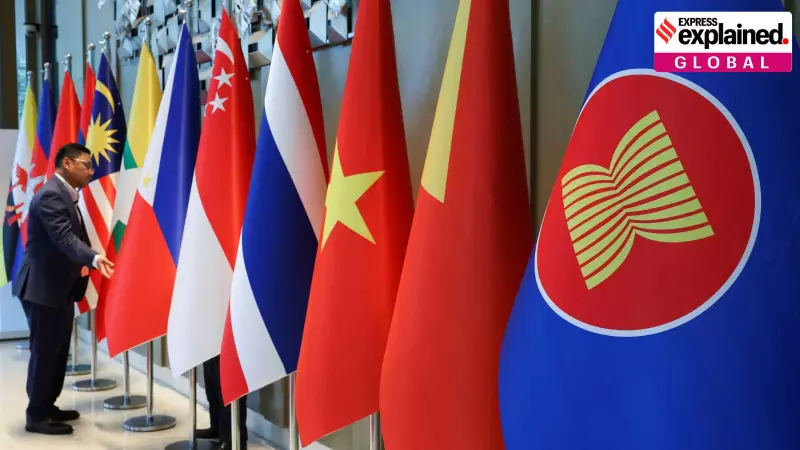
In a significant diplomatic move that could reshape Southeast Asian politics, Malaysian Prime Minister Anwar Ibrahim is pushing for a radical overhaul of ASEAN's approach to the ongoing Myanmar crisis. As the regional bloc prepares for its crucial summit, Malaysia is advocating for direct engagement with Myanmar's opposition groups—a departure from the traditional government-to-government dialogue that has yielded limited results.
The Myanmar Stalemate: Why ASEAN Needs a New Playbook
For nearly three years, Myanmar has been embroiled in a devastating civil conflict following the military coup that ousted Aung San Suu Kyi's democratically elected government. The ASEAN Five-Point Consensus, established in April 2021, has largely failed to curb the violence or facilitate meaningful political dialogue. The death toll continues to mount, with humanitarian conditions deteriorating across the country.
"The current approach simply isn't working," emphasized a senior Malaysian official familiar with the summit preparations. "We cannot continue business as usual while the people of Myanmar suffer."
Malaysia's Bold Proposal: Engaging the Opposition
Prime Minister Anwar's government is championing a more inclusive dialogue framework that would bring Myanmar's National Unity Government (NUG) and ethnic resistance organizations to the negotiating table. This represents a fundamental shift from ASEAN's longstanding principle of non-interference in member states' internal affairs.
The proposed strategy includes:
- Formal recognition of opposition groups as legitimate stakeholders
- Creation of parallel communication channels beyond the military junta
- Development of a coordinated humanitarian assistance framework
- Establishment of clear benchmarks for Myanmar's return to democratic governance
Regional Implications: Why India Should Pay Attention
For India, Malaysia's diplomatic initiative carries significant strategic weight. As a key player in the Indo-Pacific region with substantial economic and security interests in Southeast Asia, New Delhi has been closely monitoring the Myanmar situation. The crisis has direct implications for:
- Border Security: India shares a 1,643-kilometer border with Myanmar, making stability in the region a paramount concern
- Connectivity Projects: Ongoing initiatives like the India-Myanmar-Thailand Trilateral Highway depend on normalized conditions
- Regional Balance: A peaceful, stable Southeast Asia aligns with India's Act East policy objectives
The Road Ahead: Challenges and Opportunities
While Malaysia's proposal has gained traction among some ASEAN members, it faces resistance from countries preferring a more cautious approach. The upcoming summit will test the bloc's ability to forge a unified position on one of the most pressing challenges in its history.
As diplomatic efforts intensify, regional observers note that the success of Malaysia's initiative could determine not only Myanmar's future but also ASEAN's credibility as an effective regional organization. The world watches as Southeast Asian leaders grapple with balancing principle with pragmatism in their pursuit of peace.





